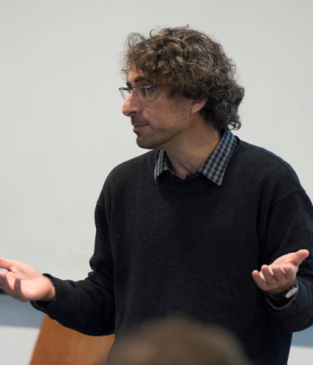Program Structure

The HEC Paris PhD program is a full-time program designed to prepare students for academic careers. Success in academia requires deep expertise in a specific research field, strong training in research methods, and practical experience in data collection and analysis. Students also develop essential skills in writing and presenting papers, academic networking, and publishing research.
A two phase curriculum
The program is structured in two phases:
• Year 1-2: Research Master Phase
• Year 3-5: Doctoral Studies Phase
Note that the Law and Regulation specialization offers a three-year track that starts directly with the doctoral studies phase.
Coursework: During the first two years, students benefit from intensive coursework at the research frontier. Coursework includes:
- Foundation courses in management and/or economics.
- Foundation courses in research methods, including econometrics, statistics, machine learning, experimental design, and qualitative methods.
- Specialization courses that offer state-of-the-art training in the chosen areas of specialization. These courses represent the bulk of courses over the first two years.
- Elective courses.
- Professional development workshops on topics such as academic writing, research reproducibility, academic publishing, and pedagogy.
- Optional French language courses throughout the PhD program.
Research: From the first year, students start working on their research under the guidance of their advisor. Students write and defend:
- A Summer Paper at the end of Year 1.
- A Research Thesis at the end of Year 2.
Master’s Research Degree: At the end of the second year, students receive an accredited Research Master Degree.
Research & Faculty Guidance: During the doctoral studies phase, students work on their paper-based dissertation and may take additional courses. They present their research to a panel of faculty members from their department at least once a year to gather feedback and advice.
Conferences: Students are encouraged and supported to present their research at international academic conferences. The PhD program provides conference funding, including transportation, food, lodging, visa costs, and conference fees. On average, our students participate in two academic conferences annually.
Academic Visits: Most students also spend time as visiting scholars at top universities or business schools abroad. Our faculty has a strong network of co-authors who work at leading research institutions around the world. They leverage this network to help PhD students secure invitations for research visits ranging from a few weeks to a full academic year. These visits present a great opportunity for students to build their academic network, collaborate with renowned faculty, receive feedback on their research, and prepare for the job market. The PhD program supports students financially by offering an additional cost-of-living scholarship, return ticket, insurance, and visa fees. Institutions visited in recent years include HBS, MIT, Wharton, Columbia, Chicago U, LSE, and more.
Job Market: We prepare students for the academic job market in their final year through dedicated training workshops, mock interviews, and practice job talks. The program also supports students' travel to job market events.
PhD Degree: Students defend their dissertation in the final year of the program. Depending on their area of specialization, they are awarded a PhD in Management, Economics, or Law and Regulation.
